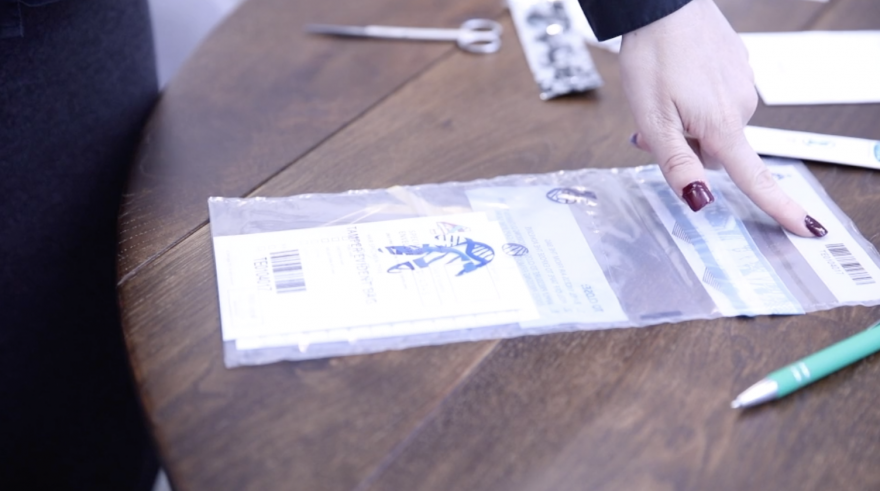TL;DR - Court-ordered DNA tests in the UK typically take 2-10 working days to provide results after samples are received at the laboratory, with DNA Legal delivering results within 3 working days. The process involves sample collection through a neutral third party or trained collector, with strict chain-of-custody protocols to ensure court validity. Tests must be conducted by Ministry of Justice-accredited laboratories, costing at least £325, and same-day or next-day collection is available nationwide. At-home DNA kits are inadmissible in court and cannot replace court-ordered tests.
When the question of paternity arises, it’s often as a means of finding out who is biologically responsible for financially supporting a child. It’s an emotional and stressful time for all involved, especially when there’s an ongoing dispute. To find out who the father definitely is (or isn’t), a DNA test may be ordered by the court.
In the vast majority of legal cases, the reason the court has had to order the DNA test is that the man who is alleged to be the father is disputing paternity, and so verification is required. On the other side, a man might order a DNA test to help get visitation rights to see his child. Other reasons include access or right to inheritance, or for VISA applications to help a family member to enter the country.
Other circumstances in which DNA testing is absolutely crucial is in the process of care-proceedings and safeguarding children. Often in cases of this nature DNA testing may be required to establish paternity of multiple putative fathers to ascertain if firstly the participant is the biological father and to subsequently move forward with proceedings dependent on the outcome.
What is the process of a court-ordered DNA test?
A court-ordered DNA test may tell you specifically which laboratory to use; there are a dozen in the UK. Don’t worry, you won’t have to travel very far or go to a large scientific testing centre to do your DNA test. It is much more likely that you will go to see a neutral third party, such as a clinic or trained sample collector (who may well come to you).
The DNA samples go through a strict chain of custody to ensure that there is no interference and that the results will be 100% valid in a court of law. Before the buccal (cheek) swabbing takes place to physically collect the DNA, all of the participants are identified appropriately. After the swabbing takes place, the samples are sealed in a tamper-proof chain-of-custody sealed bag and securely shifted directly to the laboratory for testing.
The testing laboratory and entity must be approved to provide DNA testing, with accreditation from the Ministry of Justice to be valid for use in a UK Court of law. DNA Legal’s accreditation status can be checked at the following hyperlink for your further peace-of-mind when choosing DNA Legal for your testing requirements.
How long does a court-ordered DNA test take?
Depending on the laboratory, results can take as little as 2 working days to come back from the receipt of samples. Other laboratories may take as long as 10 working days to provide your results, it differs on a lab-by-lab basis. The results are wholly private and confidential to you and governed by strict national and international accreditations such as UKAS and ISO. Typically the private laboratories that are endorsed and accepted by the UK Government have a nationwide sample collection network, meaning you can organise for the same day collection, alternatively the sample can be posted on a special delivery. DNA Legal will deliver all paternity DNA testing within 3 working days upon receipt of samples in the laboratory, and offer same day or next day sample collection across the whole of the UK and further expanded internationally. Do you have extended family residing outside the UK and have struggled to find a suitable and accredited DNA testing company who can facilitate collection? Please feel free to call our dedicated advisory team who will gladly be of assistance.
What if you have questions and queries?
DNA testing facilities often have great partners and case handlers who can help you with all of your questions and the potential issues that you may face. There are many plausible complexities that can arise from a court-ordered DNA test, with knock-on effects to friends, siblings, and even further afield. Some DNA testing services may even offer a counsellor for those who might be adversely affected by the DNA test’s results.
Is an at-home test ‘better’?
Because an at-home test is inadmissible, by choosing to opt for one of these, you may still require a court-ordered DNA test from a Government and Ministry of Justice-approved laboratory to assist with your requirement. Note that a home-testing kit might only cost around £150 and Government-approved DNA testing services will set you back at least £325. Whether you decide to pursue the £150 home kit in addition to the court-ordered test is up to you, but it won’t help your case.
Final words
Good luck with your DNA testing process and remember to do your reading, understand everything surrounding the process, and try to gain legal help wherever possible so that a professional is there to assist you.

